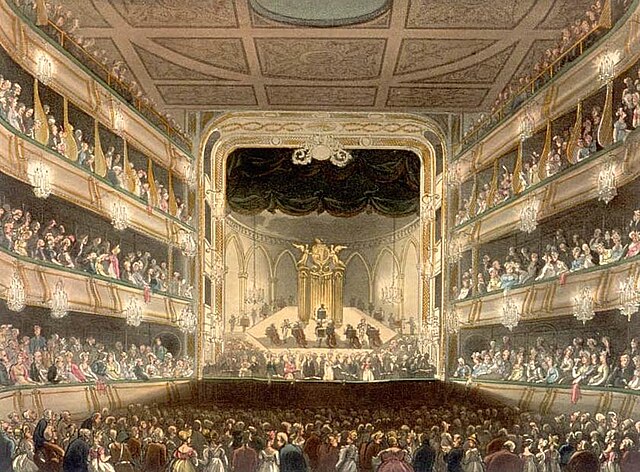Jephtha is an oratorio (1751) by George Frideric Handel with an English language libretto by the Rev. Thomas Morell, based on the story of Jephtha in Judges and Jephthes, sive Votum (1554) by George Buchanan. Whilst writing Jephtha, Handel was increasingly troubled by his gradual loss of sight, and this proved to be his last oratorio. In the autograph score, at the end of the chorus "How dark, O Lord, are thy decrees" he wrote "Reached here on 13 February 1751, unable to go on owing to weakening of the sight of my left eye."
George Frideric Handel
Jephtha's Rash Vow (1807), by James Gundee & M. Jones, London
John Beard, who created the role of Jephtha
An 1808 engraving of Covent Garden Theatre, where Jephtha was first performed, on 26 February 1752
Jephthah appears in the Book of Judges as a judge who presided over Israel for a period of six years. According to Judges, he lived in Gilead. His father's name is also given as Gilead, and, as his mother is described as a prostitute, this may indicate that his father might have been any of the men of that area. Jephthah led the Israelites in battle against Ammon and, in exchange for defeating the Ammonites, made a vow to sacrifice whatever would come out of the door of his house first. When his daughter was the first to come out of the house, he immediately regretted the vow, which bound him to sacrifice his daughter to God. Jephthah carried out his vow.
Jephthah, depicted here in Promptuarii Iconum Insigniorum of Guillaume Rouillé
The Return of Jephtha, by Giovanni Antonio Pellegrini
The Daughter of Jephthah, by Alexandre Cabanel (1879).







